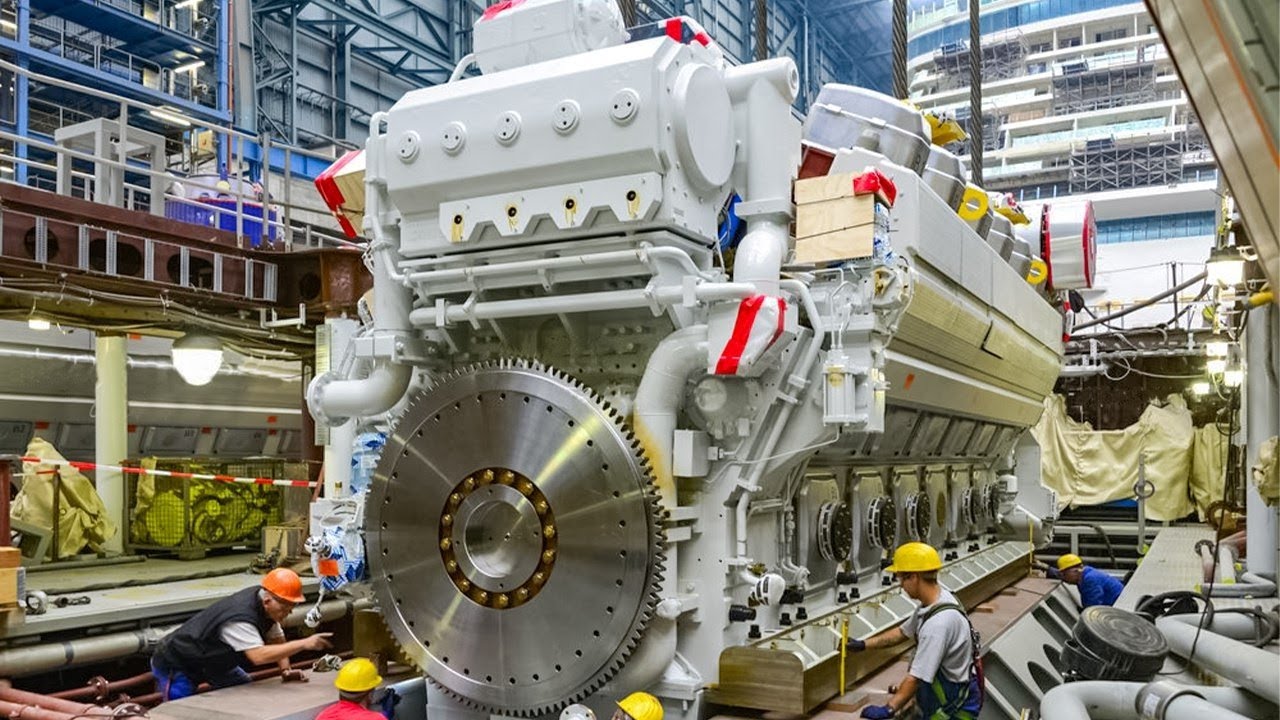Interview 2nd Engineer. Questions You Should be Prepare for

Dear friends, we present to your attention interview options for 2nd Engineer
FOR EMPLOYMENT ON TANKERS
We list common questions and approximate answers to them.
When you prepare answers to the questions of the main block on the main engine (these are questions 5 and 9), it is better to proceed from your own experience, depending on the type of diesel engines you
worked with.
1. Can you give me briefly general data of your last vessel?
- Dwt 17043, main machineries: MAN B&W, output 7200kw; AE - Daihatsu5DK20; auxilliary boiler - CangRim, water tube; cargo system - FRAMO, IGG AAL BORG.
2. What are the main types of Inert Gas System do you know? What is the most economical? What type are you familiar with?
- Inert Gas System, Inert Gas Generator System, Membrane N2 Generator System and PSA N2 Generator System. The most economical is IGS, as it utilizes exhaust gases from boiler.
3. What is the ISGOTT?
- International Safety Guide for Oil Tankers and Terminals.
4. What is the maximum admissible oxygen content in tank according to ISGOTT?
- 8% or less of general volume.
5. What Vettings did you pass during your last contract? What were the observations and deficiencies regarding to your Department?
- Prepare your answer based on your own experience depending on the type of diesel engines you have worked with.
6. How often do you make Performance Test? What are the advantages of Diesel Performance System?
- Performance of Engine is checked every month and helps to ensure while on board that the engine is running as efficiently as possible.
7. What devices are used for Performance?
- On 4 stroke engine it is calculated using maximum P gauge.
8. What are main parameters to be taken on engine?
- Maximum combustion pressure, maximum compression pressure, fuel pump index, exhaust temperature after cylinders.
9. What is the maximum admitted deviation of exhaust gas temperature between cylinders?
- It is also better to prepare your answer based on personal experience.
GENERAL QUESTIONS ABOUT THE MAIN ENGINE

1. Can you briefly explain how compression pressure (Pc) is measured on diesel generator?
2. What are the indications of low compression pressure on diesel? Have you ever met such problem?
3. Changing of exhaust gas colour is the direct indication of some operational problems. If exhaust gas colour gets a little dark, what may be the reason? And if there is too much black smoke while engine is operating under loading?
4. Blue colour gases indicate the troubles with oil system. Can you describe the possible causes in details?
5. What is affected by charge air temperature?
- Here is the example of proper answer: - Charge air temperature has a direct effect on the efficiency of fuel combustion in the engine cylinders and, consequently, on power, efficiency and exhaust gas level. Too high air charge temperature can result in limitation of engine power, excessive heating of its elements and decrease in reliability.
6. What is the correlation between temperatures of charge air and exhaust gas?
7. What is the crank web deflexion?
- Change in distance between crank webs measured during one crankshaft revolution and it is an indirect indication of crankshaft loading condition. Maximum admissible deflexion 0.00056 xS, where S is piston stroke.
8. What are the main methods for check of injection timing? How did you adjust timing on your last engine?
9. Can you give some information concerning VIT operation?
10. What is the normal cylinder oil supply gram/kw?
- Usually most of manuals recommend 0.8-1g/kw/h for 2 stroke engine. Reducing isn't advisable as can result in excessive wear. Sometimes, after replacement some parts of piston assembly run in is made, so the oil supply must be increased up to 1.4g/kw/h during this operation.
11. The consumption of cylinder oil suddenly increased about 50 l per day? Where can it escape?
- If there are no outer leakages or oil traces on shaft, or visible leaks from manholes, the most probable trouble is excessive wear of stuffing box. The second item to check is oil separator, level in sludge tank
12. Have you ever overhauled the stuffing box? What did you pay special attention to?
13. During crankcase inspection what must you attention to?
- First of all, presence of metal particles, traces of wear or friction, scratches on white metal, any abnormalities or changing colour.
14. What alarms can be tested or simulated during inspection of crankcase?
- Oil mist detector, non-flow oil alarm (piston cooling oil), slow down oil P, main bearings t, thrust and intermediate bearings temperatures.
15. What is the material for main bearings shell?
16. Which analyses of LO did you perform on board?
- Water Content Test; pH Test; Viscosity Test (using flow stick); Drop Test (on blotter pipe); TBN Test.
We wish successful and most important calm interviews to everyone!
Other documents:




